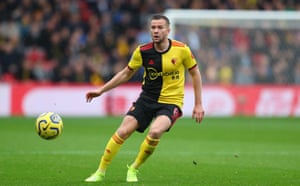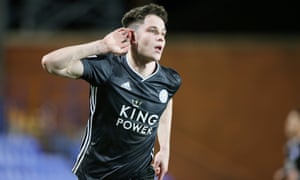[ad_1]
What is it about young footballers and romance-based reality shows? Both the male winner and runner-up in the series of Love Island that concluded on Sunday were footballers. Runner-up Luke Trotman did his apprenticeship at Luton Town, while winner Finn Tapp was at neighbouring MK Dons. And they are not the only footballers who have played out their romantic liaisons in front of three million viewers on ITV2.
I have worked with young Football League players for the last decade, helping them develop their academic skills during their apprenticeships. I was responsible for Trotman and Tapp, both of whom were local lads at their clubs. They were both relatively mature when they went full-time at their clubs at the age of 16 and they both did well in college.
Trotman followed outstanding GCSE results at St George’s School – one of the country’s top comprehensives, which somehow found room for Owen Farrell and George Ford when their fathers signed for Saracens in 2005 – with the highest possible BTEC qualifications, earning himself a place at Loughborough University. Tapp, now 20, was also successful academically but wanted to go into recruitment rather than university.
Both players did enough in their two-year apprenticeships to earn professional contracts. Trotman was only 16 when he made his first-team debut for Luton Town in the FA Trophy. Luton boss John Still extended his deal by a year after he missed much of 2014-15 with a broken leg, but he didn’t recover sufficiently and was released in 2016. Being part of the impressive football programme at Loughborough helped him work his way up the non-league ladder, from Nuneaton Borough to Darlington, but the 22-year-old is now talking of moving back south with his Love Island partner.
Tapp was the youth team captain at MK Dons, but the first team were in the process of earning promotion to League One at the time and he failed to make the step up. After gaining some experience on loan at Staines Town last season, he joined Oxford City in the summer.
Tapp and Trotman followed former Stevenage youth team players Luis Morison-Derbyshire and Michael Thalassitis (who took his own life shortly after Love Island), Macclesfield Town’s Adam Jukes and former Watford youngster Dennon Lewis on to the show. Other sportsmen have been on, too: rugby player Greg O’Shea won the show last year. The cricketer Max Morley won in 2015. And Bianca Gascoigne and Calum Best – two of the most famous surnames in British football – won the celebrity version in 2006.
Apart from the dangled carrot of a £50,000 winners cheque, what lures footballers into this lovers’ public lair? They are physically fit, which seems to make them attractive to producers, and both Tapp and Trotman are confident young men, happy to speak to strangers or in front of a group. Perhaps they are even natural leaders. These are highly sought attributes by employers – and TV producers.
Last Wednesday, Oxford United hosted a day-long conference about sports psychology. Football commentator turned clinical psychotherapist Gary Bloom was the driving force behind the event and his introductory talk perhaps goes some way to explaining the attraction of reality TV to athletes.
“Among the issues many professional athletes face is that they work in VUCA environments: that’s volatile, uncertain, complex and ambitious,” said Bloom. “They are often in psychologically unsafe places of work, they feel unable to speak up and seek help. Athletes are susceptible to lower levels of wellness than non-athletes and yet they are less likely to seek help. Their clubs may be resistant institutions, they face confidentiality issues, and everyone is caught up in results.”
Bloom also said that athletes are told what to do so often that they can become infantilised. “What do people learn if you give them the answers – which may be wrong anyway?”
Those issues are all prevalent in Love Island: lack of confidentiality, rampant immaturity, results-driven decisions, volatile relationships, and no one suitable to turn to for help. The immaturity of young footballers can be staggering until you remember they are the same age as many students yet have spent the last five years or so in a bubble, thinking they have to behave in a way that makes them feel part of the group.
Whether Tapp and Trotman came across as the intelligent and mature young men they were when I worked with them, I don’t know. I couldn’t face watching them, just in case.
Fantasy football
There should be another Englishman playing in the Champions League later this year. Released by Middlesbrough without playing a first team game, midfielder Curtis Edwards is in the Djurgårdens IF team that won the Swedish title last autumn. It has taken him seven years to get here.
After spells with local non-league clubs Darlington, Spennymoor and Thornaby, Edwards decided to spread his wings and headed to rural northern Sweden and Ytterhodgals IK – the village team of professionals we told you about last year – in 2015. He returned the following year, got a move to Graham Potter’s Ostersunds IK and went on their wild ride from the fourth tier to winning at the Emirates.
Edwards started Djurgardens’s first game of the season last Saturday, a 3-2 win over Dalkurd in the Swedish Cup, the champions’ return to Stockholm watched by over 7,000. That was more than 20 times the number that went to some Swedish Cup games last weekend, no surprise when you see that there were 24 live matches shown on Swedish TV on Sunday alone. And you thought British coverage had reached saturation point?
Remember me?

After 13 England caps, nearly 200 appearances in the Premier League and becoming an Olympian, Tom Cleverley would not have expected to be trekking to East Anglia on a Monday afternoon to play on a training pitch. But that’s where he was earlier this month, playing the first half of Watford’s draw at Ipswich in the Professional Development League.
Having been out since October with an achilles injury, the 30-year-old midfielder was the latest Premier League star to turn out for the Hornets’ second XI. Nigel Pearson and academy manager Richard Thomas are treating the Under-23s like an old-fashioned reserve team, mixing their fringe players with the best teenagers. January signings Ignacio Pussetto and João PedroIsaac also played at Ipswich; £12m signing Isaac Success has featured a couple of times recently; and Domingos Quina and Adalberto Peñaranda both played in the Premier League Cup defeat to Everton at St Albans last Friday night.
Next man up: George Hirst

You might think that picking Leicester’s George Hirst for the next man up slot is a strange one given that he celebrated his 21st birthday this week having made just one English league appearance in his career. But great things are still expected of Hirst, the son of former Sheffield Wednesday and England striker David Hirst.
He was was a starlet at Wednesday, making that one Championship appearance at the age of 17, and he has played for all of England’s teams from Under 17s to Under 20s.
Unable to establish himself at Wednesday, he spent last season in the Belgian second division at Oud-Heverlee Leuven, who were managed by Nigel Pearson at the time. Hirst only scored three times in 22 appearances but Leicester still took a chance on him last summer. He has responded by scoring eight goals in 13 appearances for Leicester’s Under-23s as they fight Chelsea for the Premier League 2 title. Hirst is feeding off the supply of talented 17-year-old Luke Thomas, another name to remember.
This week in … 1994
The Class of 92 ran amok against Sheffield United at Bramall Lane 26 years ago in a Pontins League game. A Manchester United reserves side that also included the experience of Gary Walsh in goal and Keith Gillespie on the wing, featured Gary and Phil Neville, Paul Scholes, David Beckham and Ben Thornley.
They romped to a 4-0 win, with two goals from Colin McKee, one from Thornley and one by £1m striker Dion Dublin. Franz Carr misses a penalty on a miserable night for the Blades. Two years earlier to the day, Gary Neville and McKee were the only members of the FA Youth Cup-winning team to feature in United reserves 3-2 derby win over City reserves at Old Trafford, out of favour former England winger Danny Wallace scoring twice.
Follow Gavin Willacy and Playing in the Shadows on Twitter
[ad_2]
Source link